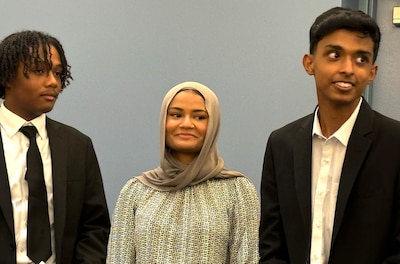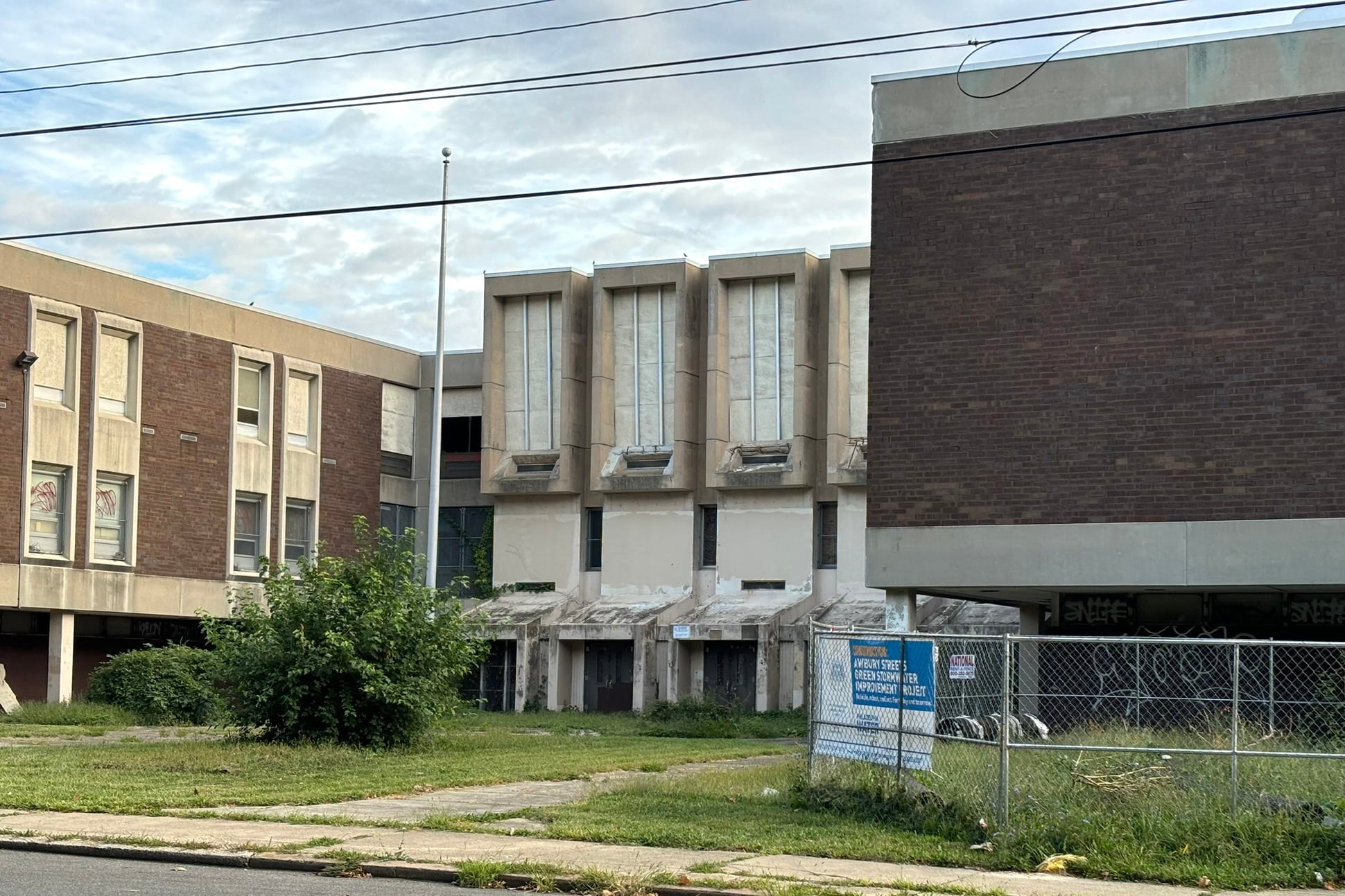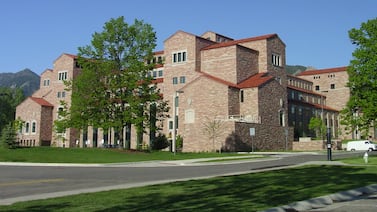Sign up for Chalkbeat Philadelphia’s free newsletter to keep up with the city’s public school system.
A parade of principals extolled the virtues of their schools Thursday to the Board of Education, moments before it took action to ramp up a comprehensive facilities study that is likely to result in at least several school closures across the city.
“We need you to … champion how great our public school system is [and] what active support can be provided to build student enrollment,” said Robin Cooper, the president of the principals’ union, the Commonwealth Association of School Administrators. “We need you to properly promote and cheer us on.”
Principals made up nearly half the 30 speakers who addressed the board, and several others were on the waiting list.
They outlined how their schools had robotics clubs, dance and drama programs, bands and choirs, even with small student populations. One rushed out of breath from a back-to-school meeting to address the board. Another pointed out that the district once deliberately invested in small middle and high schools as a learning strategy.
Despite the pleas, board members voted unanimously on two contracts totaling nearly $5 million and a resolution that will set the facilities process in motion.
“School systems, educational and community needs shift over time,” said Board President Reginald Streater, who noted that Germantown High School, his alma mater, closed in 2013, 100 years after it was founded, along with more than 20 other schools in a wrenching process. “We are clear that in order to be successful in achieving our goals, we must provide our students and schools the conditions they need to be successful. The facilities planning process is the next step in working towards these goals.”
Superintendent Tony Watlington said the new comprehensive facilities review – phase 8 of an initiative that started a decade ago – will optimize building utilization in a way that would offer more pre-kindergarten sites, allow the expansion of arts and physical education programs, bolster career and technical education programs, and generally improve academic rigor.
“We have a number of schools in the district that are significantly overenrolled and a number of facilities significantly underenrolled,” Watlington said. “We will address both of these issues in a facility plan that is focused on student achievement and in a manner that supports the community.”
Among other outcomes, Watlington said, he hoped the plan would allow all eighth graders access to algebra. It is currently available to students only at selected schools, highlighting inequities within the district. Algebra is a requirement for admission to Masterman, the district’s most selective high school.
Watlington said he planned to appoint a project team to oversee the process and promised that the district would hold several virtual and in-person listening and learning sessions, in collaboration with the mayor’s office, during October through December. A final plan will be completed between February and the fall of next year, he said.
Most, but not all, of the principals who spoke were from schools with low enrollments that presumably would be candidates for closure.
Loud cheers followed principal Sabrina Feggins’ plea for her school, Kearny Elementary, which has fewer than 200 students. Principal Aliya Catanch-Bradley of Bethune, a K-8 school with just over 400 students, dashed from a back-to-school night to give her testimony.
“We are just as good as any other school,” she said. “We are a school that takes back all of our children after all our charter school colleagues send them back to us … we don’t deny our students, we would never.” Her school, in a low-income North Philadelphia neighborhood, has just over 400 students.
Will Brown, principal of Parkway West, noted that schools like his – a small, experimental “school without walls” that dates back to the late 1960s – were founded specifically to be small and include real-world experiences into student learning.
“Rightsizing is a corporate term,” he said, adding that his school is among the “fastest improving in the state,” with test scores that have climbed above their pre-pandemic levels. “Our students are achieving and moving forward to become city leaders.”
Crystal Edwards, principal of WD Kelley school, recounted how student test scores, and student and teacher attendance have improved in her school, which has 222 students. Quoting Shakespeare, Edwards concluded, “Though she be but little, she is fierce.
While he didn’t testify at the meeting, Arthur Steinberg, the president of the Philadelphia Federation of Teachers, issued a statement warning that this round of facilities planning “must not repeat the mistakes of the past,” and that the district must fully consult each school community before any decision is made. “Any attempt to repeat prior mass school closures … will be met with fury by the PFT,” Steinberg said.
The resolution passed by the board says that district-operated schools have a capacity of 180,000 students, but currently enroll 116,000. In addition, several district buildings that are now rented to charter schools have a capacity of nearly 20,000 students, but enroll less than 14,000.
The contracts were for DLR Group for nearly $4.5 million for planning services and $430,000 with Brownstone PR and Insight Education Group for community engagement.
Defending teacher Keziah Ridgeway
Several speakers spoke up against the district’s removal from the classroom of Northeast High School social studies teacher Keziah Ridgeway after the Jewish Federation of Greater Philadelphia filed a complaint against her.
The complaint accused Ridgeway of antisemitism and a threat of violence, citing a social media post that included an emoji of a gun.
In emails sent to the Northeast community about the reassignment of a staff member, presumably Ridgeway, Northeast Principal Omar Crowder cites “statements made on social media that may violate school district policy.” The emails do not mention any classroom behavior or assignments.
Ridgeway has said she has been the victim of harrassment and threats against her in response to her pro-Palestinian views. In one classroom assignment, she asked students to compare a modern oppressed group’s use of art to Black spirituals. At a Black History Month assembly, she highlighted a video made by two students of a podcast about Palestinian art.
“I have witnessed a concerted effort to accuse teachers in the District, including Ms. Ridgeway…of endorsing anti-semitism and violence because of statements of sympathy for Palestinians and work with students in her classroom,” said retired English teacher Dina Portnoy. “These accusations are without any merit.”

Northeast student Hazel Heiko called Ridgeway “an amazing teacher who changed the way I act and think,” and called her removal a form of censorship. City Council member Nicolas O’Rourke submitted written testimony to the board calling the charges against Ridgeway “baseless.” State Representative Chris Rabb also submitted a statement saying “we must not allow students or educators to be attacked for discussing critical global issues.”
Without speaking about the Ridgeway case, Watlington announced that the district is launching an initiative with Temple University and the University of Pennsylvania, along with the organization Facing History and Ourselves, to promote a “dialogue of respect” in classrooms around contentious political issues.
Clarification Sept. 23: This story has been updated to clarify the circumstances of Northeast High school teacher Keziah Ridgeway’s reassignment.
Correction Nov. 15: This story has been updated to clarify which groups the district contracted with for community engagement.
Dale Mezzacappa is a senior writer for Chalkbeat Philadelphia, where she covers K-12 schools and early childhood education in Philadelphia. Contact Dale at dmezzacappa@chalkbeat.org.






